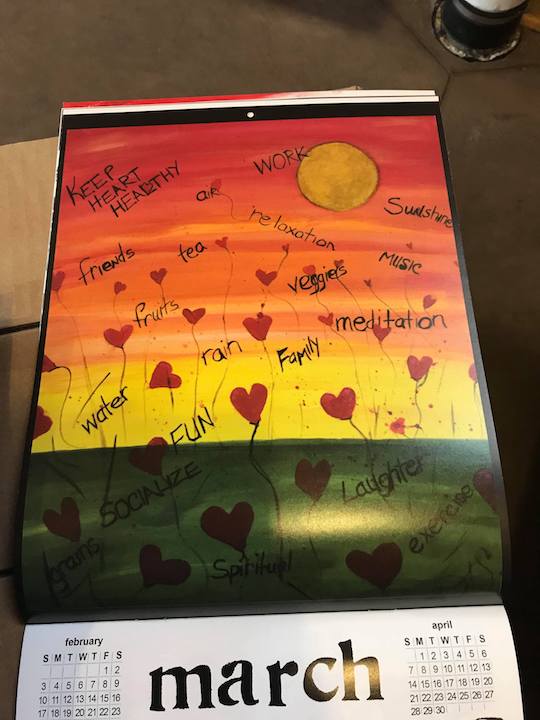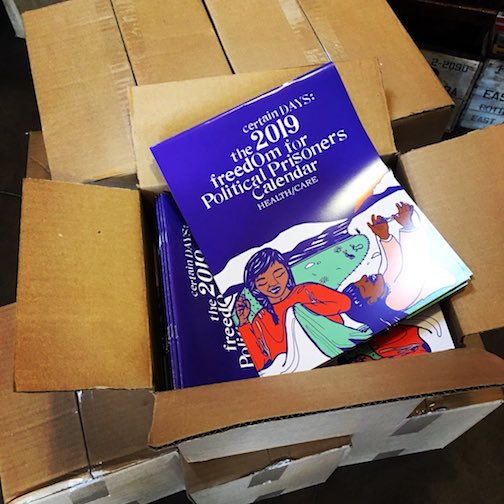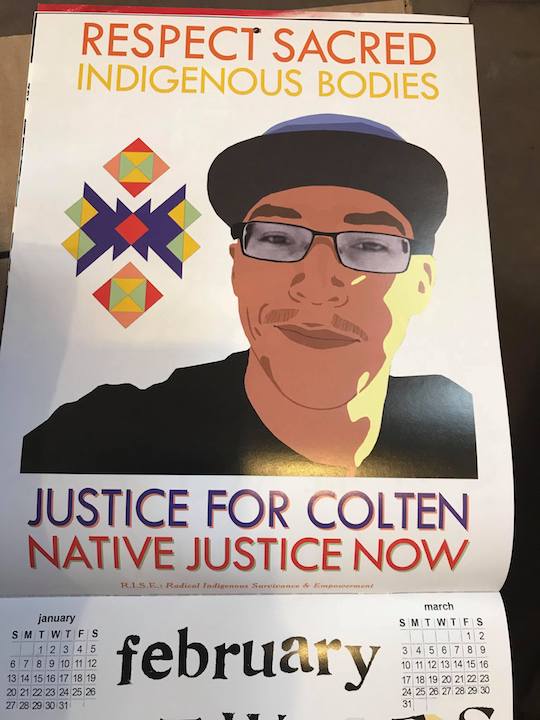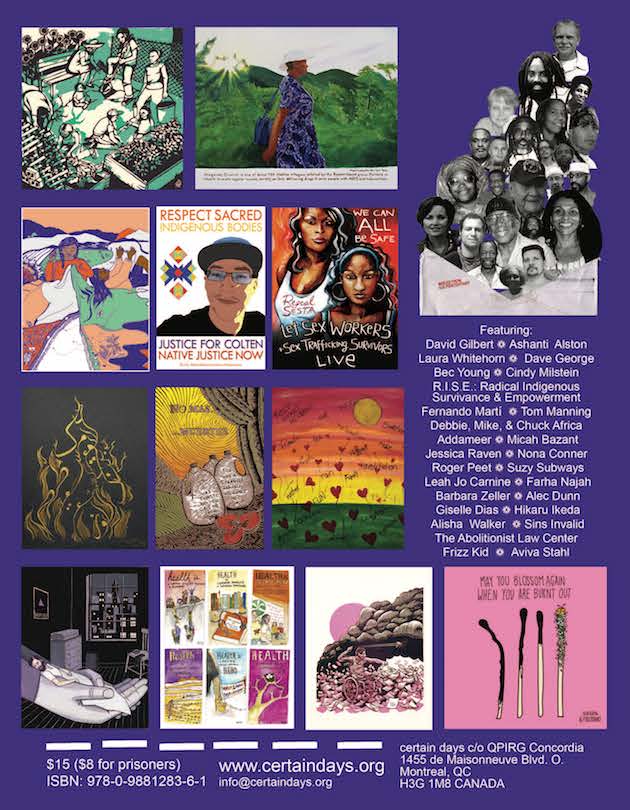Filed under: Announcement, Political Prisoners, Publication
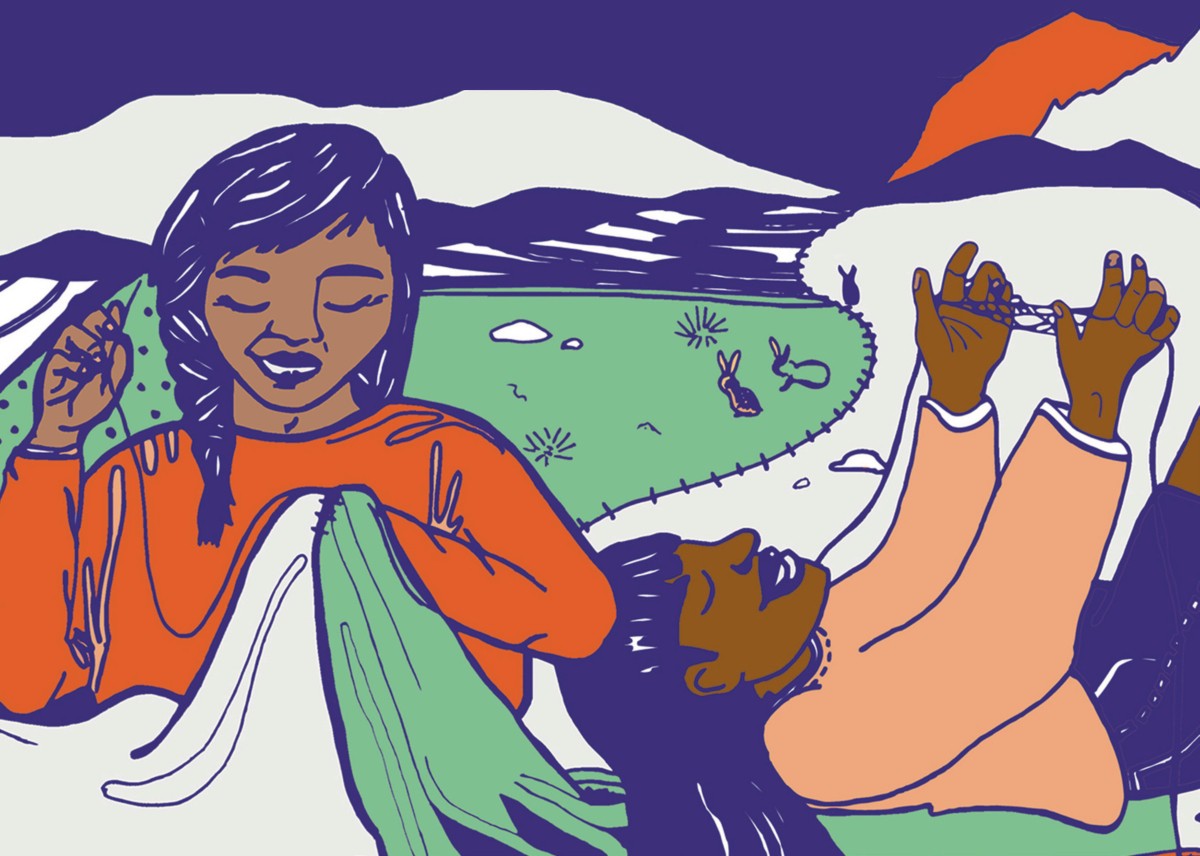
Certain Days Calendar, a benefit for political prisoners produced by prisoners, is out now, and here we present some selections from within it.
We are happy to announce that 2019 Certain Days calendar are now available for sale (and are moving fast!). We intend to sell out by early 2019! You can order in the United States and Internationally from Burning Books! Use the discount code “BULK” to get 10 or more calendars for $10 each. Shipping is free on orders over $25.
You can order in Canada too:
1-9 copies can be ordered via Kersplebedeb
(just scroll down to Canadian orders)
www.certaindays.org/order/prisoners/
Certain Days 2019: Health/Care
The Certain Days: Freedom for Political Prisoners Calendar is a joint fundraising and educational project between outside organizers in Montreal, Hamilton, New York and Baltimore, in partnership with a political prisoner being held in maximum-security prison in New York State, David Gilbert. Co-founders Robert Seth Hayes and Herman Bell were released from prison in 2018.
Your group can buy 10 or more for the rate of $10 each and then sell them for $15, keeping the difference for your organization. Many campaigns, infoshops and projects do this as a way of raising funds and spreading awareness about political prisoners.
This year’s theme is “Health/Care,” and features art and writings by David Gilbert, Bec Young, RISE: Radical Indigenous Survivance and Empowerment, Aviva Stahl, Debbie, Mike and Chuck Africa, Roger Peet, Addameer, Leah Jo Carnine, Suzy Subways, Farha Najah, Ashanti Alston, Alec Dunn, Barbara Zeller, Hikaru Ikeda, Giselle Dias, Micah Bazant, Alisha Walker, Fernando Marti, Sins Invalid, Tom Manning, Dave George, Laura Whitehorn, Frizz Kid, Abolitionist Law Center, Cindy Milstein, and more.
The proceeds from Certain Days 2019 will be divided among these groups: Addameer Prisoner Support and Human Rights Association (Palestine), Release Aging People in Prison (RAPP) and other groups in need. In 2018, we also gave proceeds to the Abolitionist Law Center and Solidarity Across Borders.
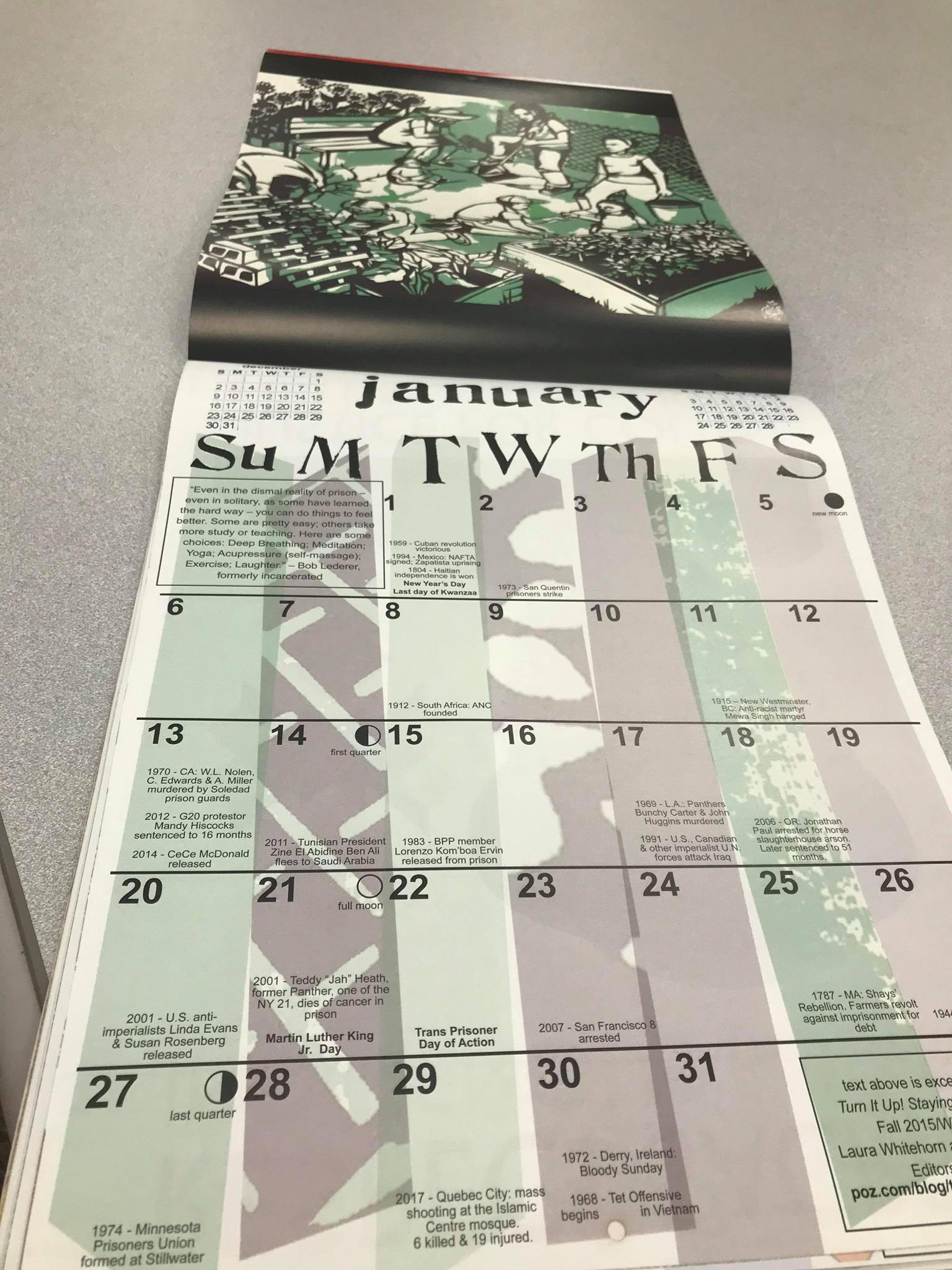
Our introductory essay
Never Stop Caring
by Cindy Milstein
It was an experiment. As are all such efforts to envision, much less bring to life, spaces where we give ourselves permission, give each other the benefit of the doubt, to stumble toward being fully human, embedded in caring communities, in ways we can barely yet imagine.
Over a weekend in spring 2018, I gathered with several dozen anarchists in so-called Pittsburgh, doing our messy best to engage in collective conversation about “care” in the most expansive, egalitarian sense. Our open-ended dialogue was intended to make visible the abundant ways that do-it-ourselves care is pivotal to reproducing ourselves and our social movements, while prefiguring far better forms of social organization. This idea had emerged out of another new project, the Institute for Advanced Troublemaking, which during its first anarchist summer school in 2017 had cultivated what felt like an otherworldly week – magical in that everyone rose to be their better selves, acting from a deep well of empathy and dignity toward each other. Or what we might call love. For care, if it is worth its salt, must be about love.
Early on in our care conversation, it became poignantly evident that so many of us are battered and bruised by this social order, which we so aspire to transform yet are equally (mis)shaped by. And worse still, the same social order too easily turns our feelings of abandonment
into shards of glass, as weapons to lash out at each other rather than the structures of violence we face. I could feel the ache in my breastbone, not merely for myself, but for the myriad pains in the room. Those of us who’d been engaged during the alt-globalization moment of the late 1990s to early 2000s caucused in a corner and realized that we’d learned it’s possible to win, that people can aim toward liberatory notions that embrace us all, in here-and-now practices and glimpses of “a new world in our hearts.” Now, it seems, for those politicized more recently, we are in a “no future” era, cast adrift on our own to drown in a sea of losses.
Soon after, back home in so-called Michigan, I heard testimonies read aloud – stories that people behind bars, or formerly disappeared, tortured, and then imprisoned, had written as a sort of chisel into the wall that divides us. Their voices were only cracks, but they made it through, part incantation, part poetry, part wound, all humanity, all brave vulnerability that wraps us close in something far bigger and more caring, more loving, than our usually compartmentalized pain. The world hurts. It does so much to destroy us.
By sharing that hurt, we start to rip it into smaller pieces that we can hold together, dispersing the weight and giving it less power. Too many, though, seem to have forgotten that of late – that these cracks are a win, messy and experimental and only a beginning. Yet a beginning nonetheless. Or perhaps a continuity, whispered and shouted through centuries of trauma: We must never stop caring.
